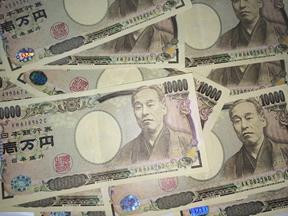Japan's economy faced a setback as the Cabinet Office revealed on Dec. 8 that the country's Gross Domestic Product (GDP) for the third quarter declined more than expected. The seasonally adjusted real GDP fell by 0.7% from the previous quarter, translating to an annualized drop of 2.9%. This figure is lower than the initial estimate of -2.1% and below market predictions of -2.0%. This marks the first negative growth in the last four quarters.
Analysts have pointed out that the GDP data reflects the long-term impact of rising prices, weighing heavily on Japan's economy as it recovers from the pandemic. Concerns about the slowing global economy affecting exports add to the uncertainty of Japan's economic recovery.
Moreover, monthly data indicates further economic weakness. Household spending in October fell by 2.5% year-over-year, marking the eighth consecutive decline. Nominal wage growth was 1.5%, still significantly lower than the current inflation rate.
Kota Suzuki, an economist at Daiwa Securities, commented that personal consumption is likely to remain weak in the foreseeable future due to the continued decline in real disposable income, a factor contributing to the sluggish consumption.
The dismal data complicates considerations for the Bank of Japan (BoJ), which has been waiting for a positive cycle of wages and prices to form before exiting its decade-long negative interest rate policy and moving towards monetary policy normalization.
BoJ Governor and Deputy Signal Hawkish Stance On Thursday morning, BoJ Governor Kazuo Ueda spoke in parliament, stating that handling monetary policy from the end of this year into next will become more challenging. He mentioned that there are various options for adjusting policy rates if interest rates are raised. This statement has intensified market speculation about an imminent policy shift.
A day earlier, BoJ Deputy Governor Noriaki Kinoshita hinted that the BoJ might soon end the world's last negative interest rate policy, the clearest signal yet from the BoJ leadership.
These views suggest that authorities are considering ending negative interest rates, further strengthening market expectations of a rate hike. The probability of the BoJ ending negative rates this month has soared from 2% to 45%.
On Thursday, Japanese bond yields saw their largest increase in a year, and the yen rose nearly 4% against the dollar.
BoJ's Path Forward Nobuyasu Atago, Chief Economist at Rakuten Securities Economic Research Institute, said, "Ending the negative interest rate policy when the economy is already deteriorating is risky for the BoJ."
Atago added that the BoJ's main consideration might be to decide its next move in January based on new inflation forecasts.
Before the yen's surge on Thursday, a media survey of economists predicted no policy change at the BoJ's Dec. 19 meeting. Two-thirds of the economists expected the BoJ to cancel negative rates early next year, with April seen as the most likely timing, although it could be moved up to January.
Following the release of Friday's GDP data, the yen further strengthened. Analysts believe that the poor results have not stopped speculation that the BoJ might act at its December meeting, rather than waiting for the fourth-quarter GDP data in February and annual wage data in March.






